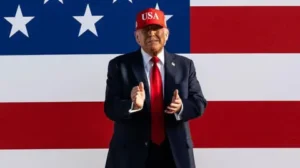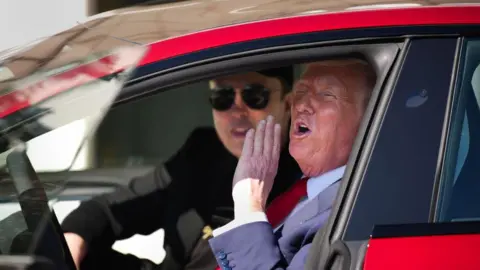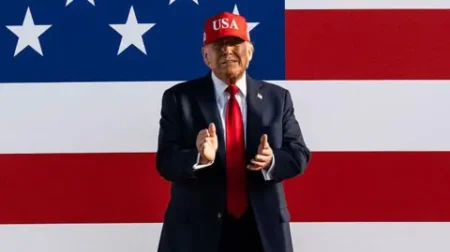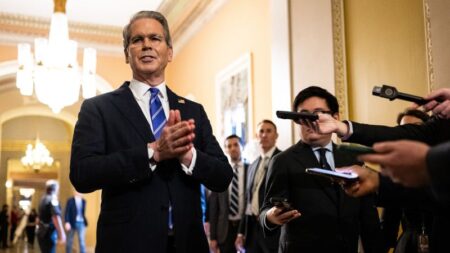In a recent turn of events, former allies turned rivals, U.S. President Donald Trump and billionaire entrepreneur Elon Musk have exchanged sharp barbs regarding Musk’s ambitious proposal to establish a new political entity known as the America Party. The friction between these two powerful figures has stirred up discussions within political and business circles alike. This development arrives amidst Musk’s recent announcement on social media platform X, which he made public this past weekend, teasing the idea of launching a political party designed to compete against the long-standing Democrat and Republican political frameworks in the United States.
Trump, known for his confrontational style, expressed his dismay at Musk’s actions in a post on his Truth Social platform. He stated, “I am saddened to watch Elon Musk go completely ‘off the rails,’ essentially becoming a train wreck over the past five weeks.” This remark not only encapsulated his feelings of betrayal but also highlighted the growing tension in what was once a robust camaraderie, where Trump had even appointed Musk to head the Department of Government Efficiency (Doge), a role aimed at streamlining federal spending.
In his announcement, Musk positioned the America Party as a fresh alternative, proposing an ideology aimed at challenging the status quo dominated by the established parties. This bold initiative comes on the heels of a significant fallout between Musk and Trump, exacerbated by diverging views on economic policies and governmental spending strategies. Musk’s public criticisms of Trump’s recent economic decisions, including a new tax and spending plan, appear to have shattered what remained of their once cooperative relationship.
Trump has voiced strong opposition to third-party movements, claiming that “they have never succeeded in the United States,” suggesting that the political infrastructure is inherently resistant to their emergence. He asserted that the existence of third parties tends to cause “complete and total disruption and chaos,” underscoring his belief that such factions could detract from the effectiveness of governance.
Moreover, Trump took the opportunity to critique Musk’s advocacy for an “Electric Vehicle (EV) Mandate,” which he argued would compel citizens to adopt electric vehicles within a tightly controlled timeframe. He went on to clarify that his administration had abolished tax incentives for electric vehicles and had never endorsed Musk’s mandate concept, emphasizing individual consumer freedom to choose from a variety of vehicle types including gasoline-powered, hybrid, and the latest technological innovations. Trump reiterated that under his leadership, individuals could select the vehicles that best suit their preferences without governmental restraint, making it clear that the EV mandate was not in line with his agenda.
Trump’s recent legislation, passed on July 4th, also marked a shift in federal spending priorities, allocating more funds toward border security, defense, and energy production. However, it has come under scrutiny for cuts to vital healthcare and food support programs, which are essential for many Americans. Musk’s frustration with Trump’s spending policies might have contributed to his latest political maneuver, aiming to forge a collaborative platform through the new America Party.
Although both men once shared not only a personal relationship but also many business ideologies, this incident sheds light on the volatility of alliances in the realm of politics and business. The ongoing rivalry may signal a transformative period as the boundaries of American political party allegiance continue to shift, producing an environment ripe for new entities like the America Party proposed by Musk. As they continue to publicly critique each other, the ramifications of their actions will likely resonate far beyond their personal conflict, potentially affecting the greater political landscape in America.











